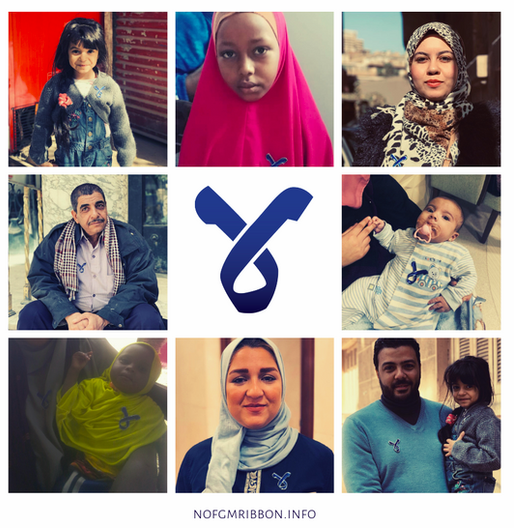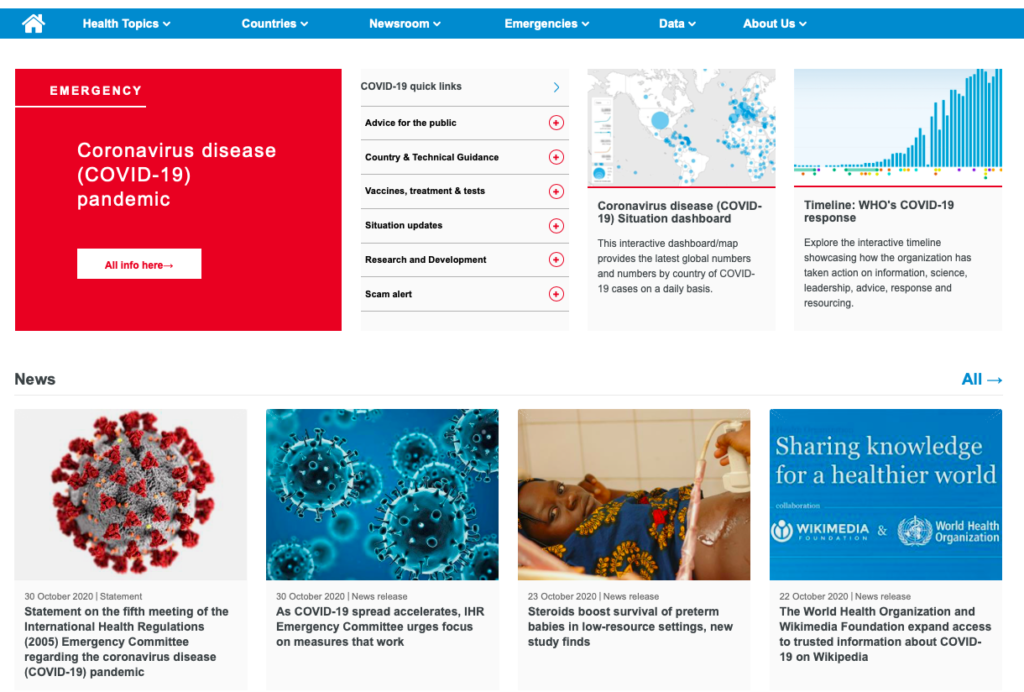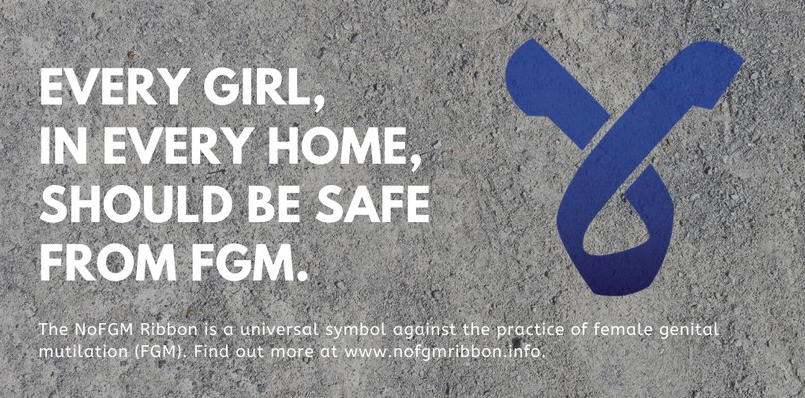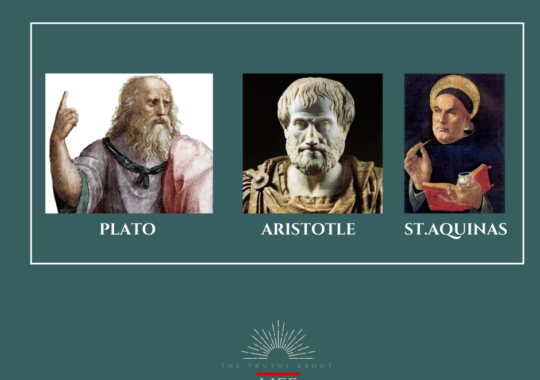In the light of past few months, the whole world is talking only about covid-19. How fast it spreads, how dangerous this virus is, how hospitals are completely full, nurses are burned out, how the mortality of this virus is less than 1%. Do read the last one, one more time. It is not a mistake, mortality is less than 1%. However, I am not a fan of conspiracy theories, so I will not go into that direction. My biggest concern in last period is the fact, that we are not talking so much anymore about solving the problems of starvation, violence, child abuse and other major threats that are still there, still happening. Only overshadowed by covid-19 situation.
Did we stop to think about ethics and morality? They seem to be overshadowed in last couple of months by “more” popular news. Let us not forget that over 200 million girls and women went through the procedure of female genital mutilation.
Once again, being a woman and a mother to a girl, I was inclined to research more about this topic in order to find any reasonable arguments that could support the existence of such painful and harmful tradition, that is causing millions of girls and woman to suffer.
By definition of World Health Organization (WHO), FGM is defined as a procedure involving complete or partial removal of the external female genitalia, or even other injuries of female genital organs.
This procedure has been practiced for over 2.000 years, even older than Islam and Christianity. The background of this procedure is supposed to be purely religious and, in the world, as we know it today it’s still widely spread across at least 28 countries in Africa and in addition also in some countries of Asia and Middle East. According to website of charity 28 Too Many there are still 6 African countries, where FGM is still legal: Chad, Liberia, Mali, Sierra Leone, Somalia and Sudan.
FGM is classified into 4 main types (28 Too Many, 2018):
- Type 1: partial or complete removal of clitoris and in some extreme cases also the removal of the surrounding skin;
- Type 2: partial or complete removal of clitoris with the inner skin of the vulva and in some extreme cases also the removal of the surrounding skin of clitoris;
- Type 3: the narrowing of vaginal opening, with or without removal of the clitoris;
- Type 4: any other harmful procedure to female genitalia.
According to WHO, it has been estimated that the first three types of FGM were implemented on more than 200 million girls and woman and that there is even 3 million girls living currently in Africa, which are exposed to the risk of undergoing FGM every year.
The practice is done mostly on the girls in any time before they turn age 15 and, in some cases, it’s even done on the married, adult woman. The age varies between the tradition of individual countries, so it seems that there is no explicit rule at which age it should be implemented, but mostly under age 15.

Furthermore, the studies by WHO and UN have showed that this practice has caused unrepairable mental and psychical damage for millions of girls and woman.
Girls and woman who find the courage later to speak about this issue, reported about severe pain after the procedure, infections and nightmares, which are usually never go away. According to the report from Sanctuary for Families, those women report that FGM is the most terrifying and painful – mentally and psychically – experience that robbed them not only from having normal life, but also from their femininity and the most basic human rights.
As a personal experience, my hands and feet were tied up tightly and I was held strongly by the most nearest and dearest to me, this can usually be the mother, aunt or grandmother. The thought of being tied by my dearest left me suffering more, as they were the ones who assisted in my hurt. – Real story from peer research published by FORWARD and Options research team
This issue has been recognized by WHO and UN as a major a human rights violation.
I think that the issue with this old tradition is not only that it presents a major human rights violation, but also, much worse, child abuse.
Considering that in most cases the procedure is implemented on young girls, younger than 15 years old, it can be easily classified as a child abuse. The children who didn’t really had the chance yet what kind of beliefs they would choose to follow in their lives, are forced to accept such terrifying and irreparable procedure, that leaves a mark for the rest of their lives.
There was also one girl who was five years old, she died at the hospital where my cousin was working as a doctor. Her story was that something had gone terribly wrong with the circumcision, either she was not sewn properly or cut badly so she bled to death. – Real story from peer research published by FORWARD and Options research team
Not only that they are robbed from their childhood, they are faced with this very intimate abuse in very early stages of their life.
Can we really argue that any such tradition, which is leaving permanent mental and physical bruises on the girls and women, has any ethical or moral imperatives?
It was reported in some researches that many participants in this tradition can’t even explain why this kind of procedure should be implemented. Reading about possible arguments in favor of the implementation of FGM, I have found only couple arguments across the supporters of this tradition. According to FORWARD and Options research, these are
- FGM has been part of community’s tradition for ages;
- The pressure of the community and family members;
- The control over woman’s sexual life;
- FGM is considered to make girl clean and beautiful.
Looking strictly from ethical and moral lens on the arguments presented above, can we really accept them as ethically and morally correct?
The question that I raise here is: Can anything that is violating basic human, woman and child rights, be accepted as morally and ethically indisputable?
I believe that many of the most fundamental ethic principles are violated with implementation of FGM’s related procedures, as Gracyk listed them long time ago:
- Respect for autonomy, which is guiding us to fully respect the decisions of others when they concern their own lives;
- An obligation not to harm others;
- An obligation to bring good instead of bad in our actions;
- An obligation to not waste or destroy resources, which can be used for good actions.
Learning more about this subject makes me question the validity of the arguments presented earlier in this post, in the favor of FGM. Reading about the confessions from the girls who experienced this deeply traumatic procedure, where they are explaining how they were forced into FGM, how the men or woman in their community have violently forced them into FGM, makes me question any ethical or moral views on this action.
I believe that if some group of people grabs you, forces you to be still and performs painful procedures on your body, without your consent, this has nothing to do with humanity and respect for general ethical or moral imperatives.
I have hard time believing that in the today’s world we still have millions of girls who doesn’t have any power over their bodies. Girls who have no one to protect them from violation of their basic human rights. Girls who are not allowed to take such important decision that will mark them for the rest of their lives.
As a parent to a 6-year old girl, I cannot imagine putting my child through such abuse, while she doesn’t even have the ability to speak for herself. If and when my daughter will be old and mature enough to make this kind of a decision for herself and if she chooses to follow such or similar procedure, independently from pressure of any religion or tradition and pressure from the community, I could accept it as a valid decision. But until this girls and women are forced to do it, I can’t see it in any kind as ethically or morally acceptable.
Even if both, WHO and UN reports that they have taken the measurements to reduce FGM already a decade ago, the reduction has not decreased as expected. I believe that in order to work on elimination of this kind of abuses, the general ethical and moral principles should be emphasized more in every aspect of the lives, from kindergarten, to school and to economy.
Today is Sunday, 1 November 2020. Visiting the home page of WHO, I can see this:

No news or new researches about child abuse or FGM. All I can see are news about covid-19.
WHO let me ask you have you narrowed your fields of work? Do you cover now exclusively and only covid-19? Other threatening diseases and states have been solved already?






You made some nice points there. I did a search on the theme and found nearly all folks will go along with with your blog. Maressa Llywellyn Stanford
Appreciation to my father who informed me concerning this blog, this weblog is actually amazing. Roseline Alf Ailsa